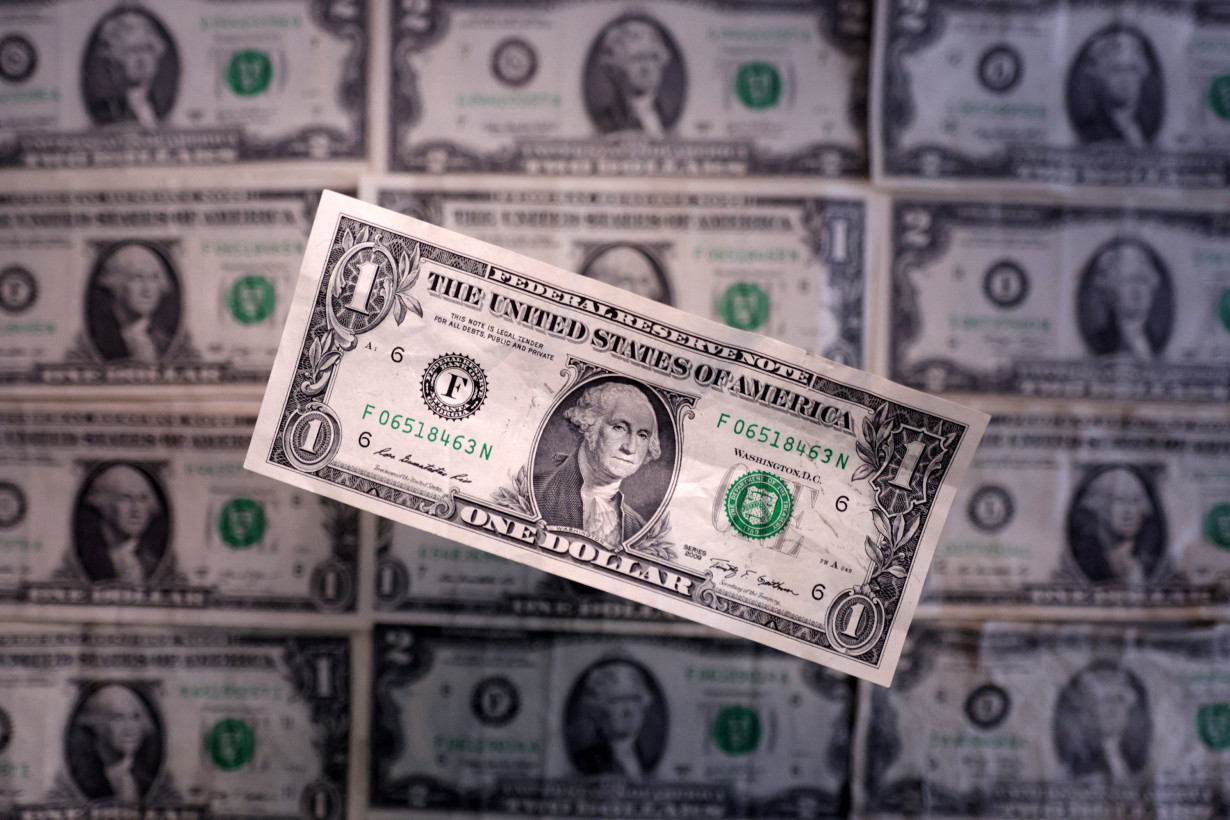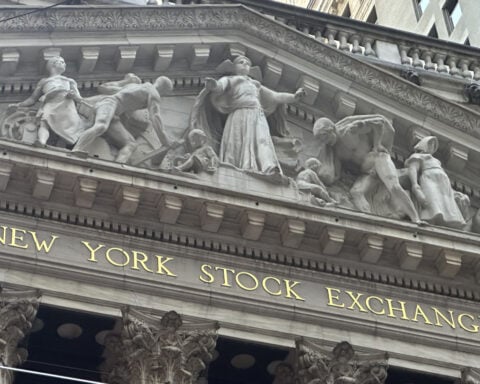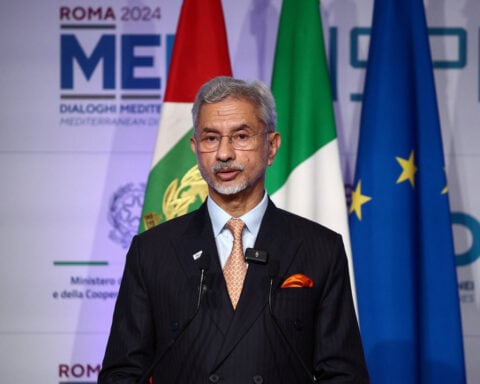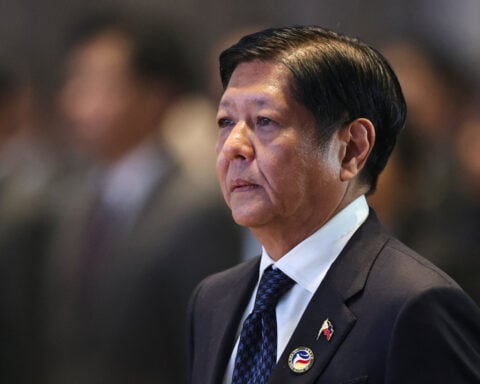By Karen Brettell
NEW YORK (Reuters) -The U.S. dollar gained against the euro and yen on Wednesday as traders mulled whether tariffs planned by U.S. President Donald Trump to be announced next week will be less onerous than feared.
The British pound, meanwhile, fell to a two-week low on cooler inflation and after British Finance Minister Rachel Reeves delivered her latest fiscal statement.
The U.S. currency has alternated between bouts of optimism and fear over whether levies placed on trading partners will be more or less flexible, with traders concerned tariffs will dent growth and potentially reignite inflation.
“Everybody's trying to figure out what's going to be done on tariffs,” said Steve Englander, head of global G10 FX Research and North America macro strategy at Standard Chartered Bank's NY Branch.
“They want to avoid market pressure before there's an announcement. But I think there's also some risk that, when push comes to shove, the announced tariffs will be more hawkish than the market's pricing,” he added.
Trump said on Monday automobile tariffs are coming soon even as he indicated that not all of his threatened levies would be imposed on April 2 and some countries may get breaks.
The greenback also got a modest bid on Wednesday after durable goods orders unexpectedly rose in February.
The euro has failed to get a boost from tariff optimism this week and is on pace for its sixth consecutive day of declines against the U.S. currency. It reached $1.0766 on Wednesday, the lowest since March 6.
The European Union's trade commissioner Maros Sefcovic met with Trump's top trade officials on Tuesday to try to avoid steep U.S. tariffs on EU goods next week, but results of the talks were unclear.
Bank of America reported that its proprietary flow data showed an acceleration of selling from the official sector — which includes sovereign wealth funds and central banks — of euros against the dollar beginning last week.
"Such flows suggest the official sector has yet to believe in the fading of the 'U.S. exceptionalism' and the 'European renaissance' that could trigger a potentially substantial rebalancing towards EU assets," said Athanasios Vamvakidis, head of forex strategy at BofA.
The Japanese yen weakened 0.37% to 150.48 per dollar, with the greenback gaining in line with rising U.S. Treasury yields.
Bank of Japan Governor Kazuo Ueda said on Wednesday that the central bank must raise interest rates if persistent increases in food costs lead to broad-based inflation but cautioned that underlying inflation remains below its 2% annual target.
“The bar is high for the bank to dial up the pace of rate hikes. As such, the BOJ is unlikely to tighten policy by more than is currently priced in,” Win Thin, global head of markets strategy at Brown Brothers Harriman, said in a report.
The BOJ is seen as most likely to next hike rates in July.
New Bank of Japan board member Junko Koeda also said the country's real interest rates are currently "extremely low," as inflation accelerates backed by solid growth in wages.
Japan's economic fundamentals, meanwhile, suggest the yen's real value is closer to 120-130 per dollar rather than the current 150 levels, a senior lawmaker told Reuters, as the ruling party considers steps to help reverse capital outflows.
Sterling fell to its lowest since March 11. Gilt yields also fell after the UK's Debt Management Office said it would issue fewer bonds than expected in 2025/26, cooling market fears about another wave of supply. The British pound was last down 0.35% at $1.2898.
Data earlier showed British inflation slowed to an annual rate of 2.8% in February from 3.0% in January.
The Australian dollar was last up 0.16% at $0.6311. Data earlier showed that Australia’s consumer inflation slowed in February.
In cryptocurrencies, bitcoin fell 1.00% to $87,017.
(Reporting by Karen Brettell;Additional reporting by Stefano Rebaudo; Editing by Jamie Freed, Bernadette Baum, Hugh Lawson and Sharon Singleton)

 Trump has begun another trade war. Here's a timeline of how we got here
Trump has begun another trade war. Here's a timeline of how we got here
 Canada's leader laments lost friendship with US in town that sheltered stranded Americans after 9/11
Canada's leader laments lost friendship with US in town that sheltered stranded Americans after 9/11
 Chinese EV giant BYD's fourth-quarter profit leaps 73%
Chinese EV giant BYD's fourth-quarter profit leaps 73%
 You're an American in another land? Prepare to talk about the why and how of Trump 2.0
You're an American in another land? Prepare to talk about the why and how of Trump 2.0
 Chalk talk: Star power, top teams and No. 5 seeds headline the women's March Madness Sweet 16
Chalk talk: Star power, top teams and No. 5 seeds headline the women's March Madness Sweet 16
 Purdue returns to Sweet 16 with 76-62 win over McNeese in March Madness
Purdue returns to Sweet 16 with 76-62 win over McNeese in March Madness








